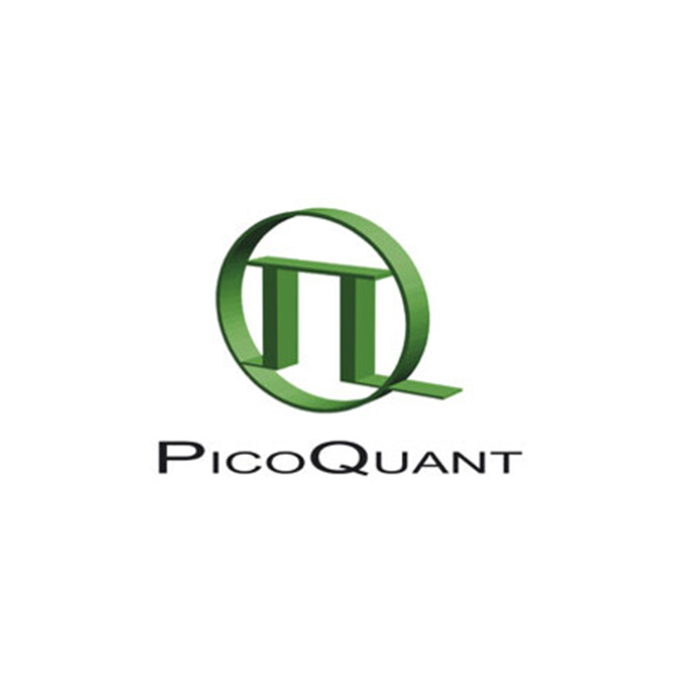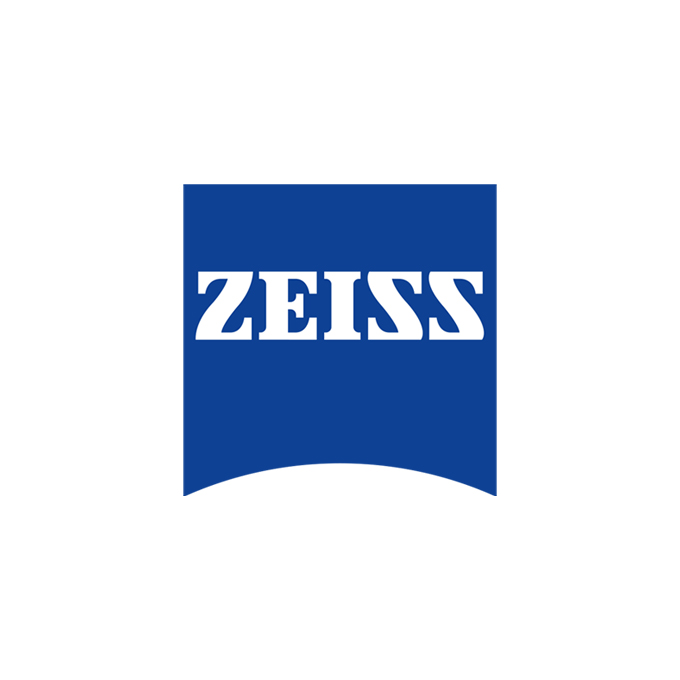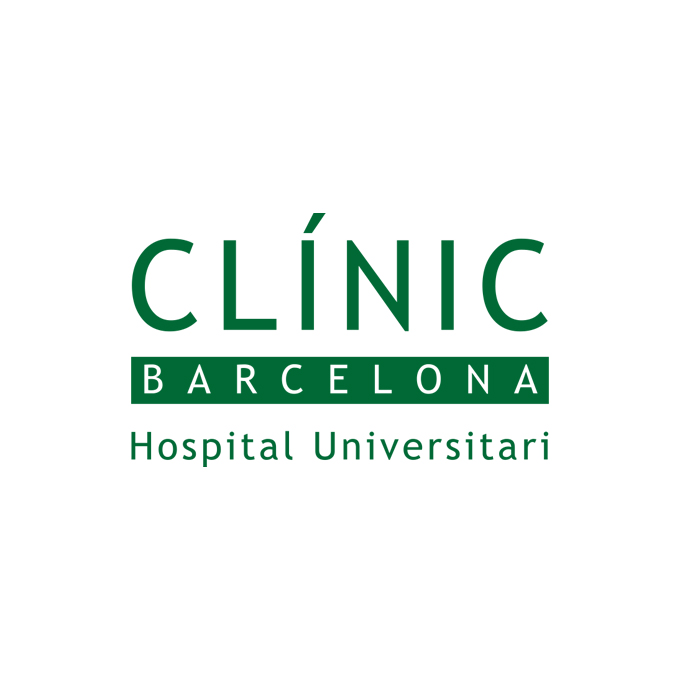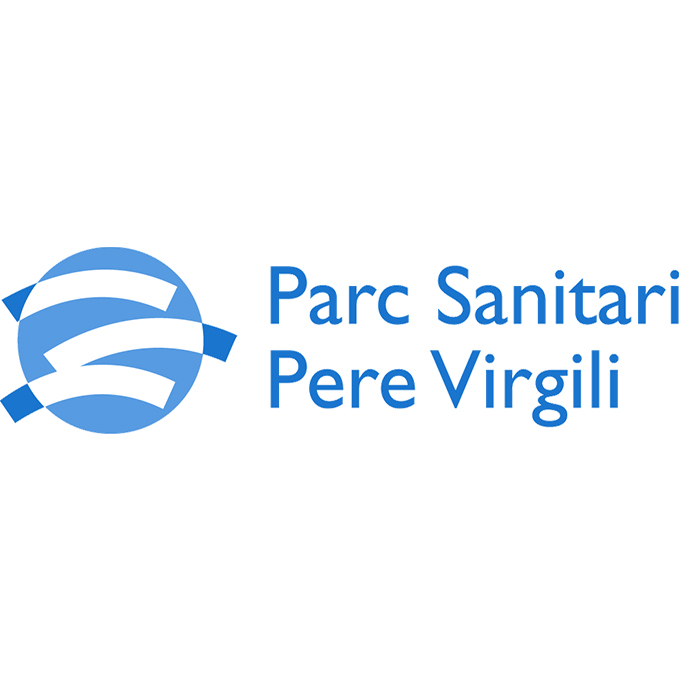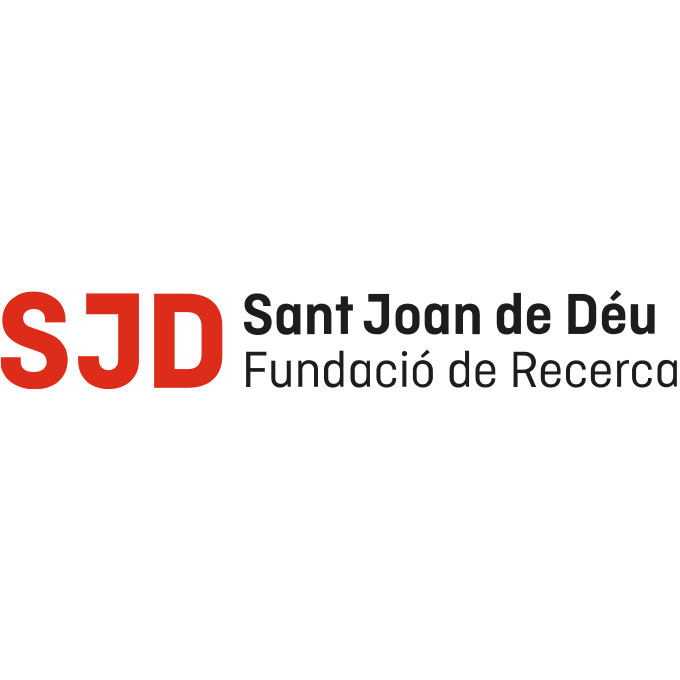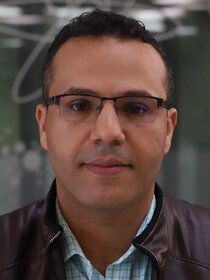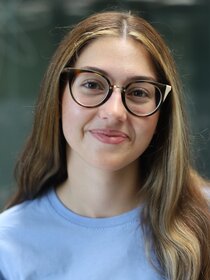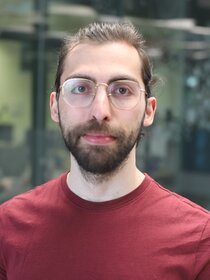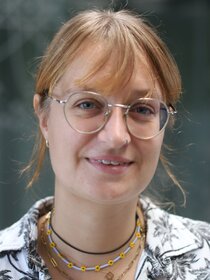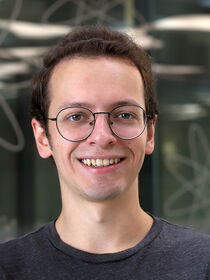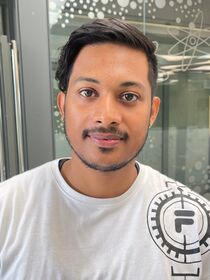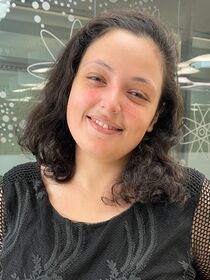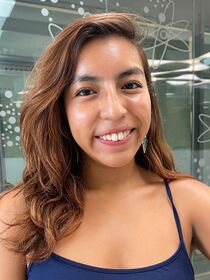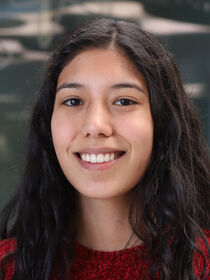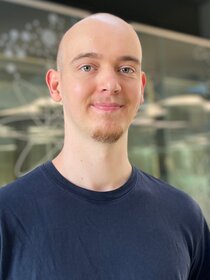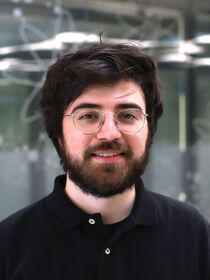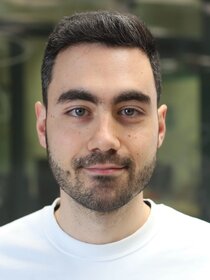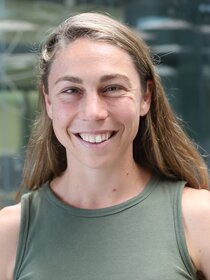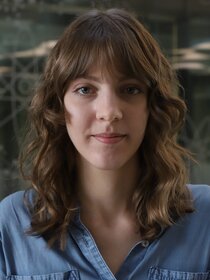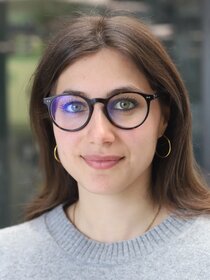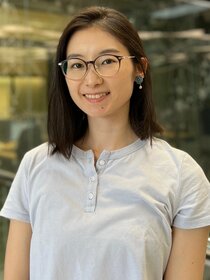Flight
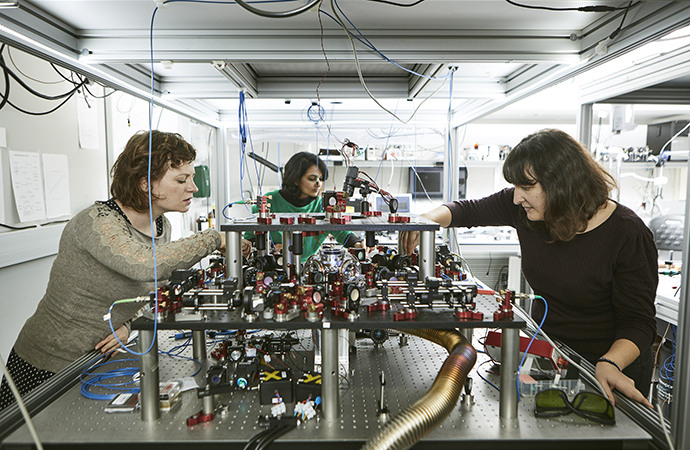
FLIGHT is a 60-month MCSA COFUND doctoral program that aims at recruiting outstanding PhD students to carry out ambitious PhD-projects at ICFO in one of 3 tracks: Enhanced, Industrial or Clinical.
FLIGHT aims to foster career mobility of researchers beyond the academic sector. The program includes an extensive training program of multidisciplinary scientific workshops and training events where all Fellows are exposed to the interdisciplinary mix between academic research and industrial/clinical work.
PhD students in the Industrial and Clinical tracks will undertake research projects in collaboration with one of 14 Industrial and Clinical partners, from innovative start-ups to multinational companies and leading local hospitals, who will co-finance research projects, and provide co-supervision, extended secondments, research and training resources.
![]()
This project has received funding from the European Union’s Horizon Europe research and innovation programme under the Marie Skłodowska-Curie grant agreement No 101081441
Projects
2 Research projects are available to work one of ICFO’s 26 Research Groups within the Enhanced track. Within the Industrial and Clinical tracks, specific collaborative projects are available with identified Research Groups and Partners in each call. These are listed below.
In their application, fellows should indicate the track(s) and research project(s) and/or group(s) of interest.
Enhanced Track
2 fellowships are available to work with one of ICFO’s 26 Research Groups
Industrial Track
Project IT006: Evolving QRNGs: higher rates from weaker assumptions
ICFO Research Group: Quantum Information Theory
Partner: Quside Technologies SL
Supervisors: Antonio Acín (ICFO), Gabriel Senno (Quside)
Description: The security of any quantum random number generation protocol rests on a set of assumptions. From a theoretical perspective, the weaker the assumptions are the more robust the security proofs is. However, from an industry perspective, it is important that these assumptions can be easily satisfied with realistic devices. At present, we either have fast devices operating protocols with strong assumptions or protocols with mild assumptions running at slow rates. The aim of this project is to provide the theoretical tools to bridge this gap.
Project IT008: How do crops avoid photodamage under the sun?
ICFO Research Group: Photo Harvesting in Plants and Biomelocules
Partner: IRTA
Supervisors: Nicoletta Liguori (ICFO), Marta da Silva (IRTA)
Description: All crop species and varieties face a similar challenge when grown under natural sunlight in the field: utilizing sunlight for growth while avoiding photodamage. How do they manage this? The student will combine state-of-the-art biochemical and spectroscopic protocols to study photoprotection in different crop species and varieties, obtaining a molecular view of the mechanisms used in such biodiversity for photoprotection.
Project IT009: FPGA-based hardware acceleration for Post Quantum Cryptography (PQC) and Quantum Key Distribution (QKD) emulation
ICFO Research Group: Optolectronics
Partner: LuxQuanta Technologies S.L
Supervisors: Valerio Pruneri (ICFO), Pau Gomez Kabelka (LuxQuanta)
Description: This PhD thesis is devoted to the development of FPGA based PQC codes, which will strengthen the classical communication channels of LuxQuanta’s QKD transceivers portfolio. The candidate will also develop an FPGA-based emulation of the optical transmission layer used for QKD, a versatile toolchain for optical simulation and verification.
Project IT010: Development of Applications and Devices Based on Photonic Integrated Circuits
ICFO Research Group: Optolectronics
Partner: ZEISS
Supervisors: Valerio Pruneri (ICFO), Norbert Kerwien (ZEISS)
Description: ICFO and Zeiss are teaming up to work together on the design, fabrication, and characterisation of applications and devices that incorporate photonic integrated circuits (PICs). The successful student will take advantage of ICFO’s burgeoning infrastructure in this area, as well as Zeiss’ industry-leading expertise in this, and related, fields. The aims, and the specific technical focus of the project will be tuned to the candidate’s experience, but will involve strong elements of optical design and will result in the development of devices or components that are of common interest to both Zeiss and ICFO.
Project IT011: Novel concepts towards reliable and scalable CO2R systems (“ONTARIO”)
ICFO Research Group: CO2 Mitigation Accelerated by Photons
Partner: CERT Systems
Supervisors: Pelayo García de Arquer (ICFO), Christine Gabardo (CERT Systems)
Description: The project will combine catalyst and electrode design with advanced spectrospies and modelling to overcome present bottlenecks in the reliability and scalability of CO2 electroreduction systems. ONTARIO will focus on the role of anodes and interfaces to achieve stable and sustainable electrodes, leveraging a close industrial-academic collaboration to accelerate the path to market of CO2R technologies.
CLOSED PROJECTS
Project IT001 (CLOSED) : Swift leaf: engineering faster molecular switches in plants to optimize their response to sunlight changes
ICFO Research Group: Photon Harvesting in Plants and Biomolecules
Partner: IRTA
Supervisors: Nicoletta Liguori (ICFO), Marta da Silva (IRTA)
Description: Can we make plants respond faster to sunlight changes by modifying the structure of their light-harvesting complexes? The PhD student will investigate the effect of changing the structure of the light-harvesting complexes in plants by combining novel methods in ultrafast spectroscopy with molecular biology, biochemistry and field experiments on plants. The project includes a secondment at IRTA and an international collaboration with the VU Amsterdam.
Project IT002 (CLOSED) : Continuous variable quantum key distribution with discrete modulation.
ICFO Research Group: Quantum Information Theory
Partner: LuxQuanta Technologies S.L
Supervisors: Antonio Acín (ICFO), Marco Cofano (LuxQuanta)
Description: The project is focused on research, development, implementation, and validation of security proofs for continuous variable quantum key distribution (CV-QKD) with discrete modulation. The results of the project will allow for a novel QKD system with better performance (secret key rate) and with reduced implementation complexity compared to the current state-of-the-art.
Project IT003 (CLOSED): New Methods and Protocols for Quantum Random Number Generation
ICFO Research Group: Quantum Information Theory
Partner: Quside Technologies SL
Supervisors: Antonio Acín (ICFO), Gabriel Senno (Quside)
Description: This project’s goal is to improve state-of-the-art Quantum Random Number Generators (QRNGs) by developing new theoretical protocols and numerical methods. In particular, it will imply deriving stronger security proofs for device-dependent and semi-device-dependent QRNGs, as well as designing new device-independent protocols for randomness generation in quantum networks.
Project IT004 (CLOSED): Development of detectors and image sensors based on quantum dot technology
ICFO Research Group: Functional Optoelectronic Nanomaterials
Partner: Qurv Technologies SL
Supervisors: Gerasimos Konstantatos (ICFO), Stijn Goosssens (Qurv)
Description: ICFO and Qurv are teaming up to develop a new generation of wide-spectrum image sensors for high volume computer vision applications. We leverage current CMOS scalable manufacturing and advanced materials such as colloidal quantum dots and 2D materials to unlock new levels of performance, reliability and function in XR devices, service robots and automotive applications. The aim of the project(s) can be tuned according to the candidates’ expertise and can range from the development of high-throughput manufacturing of image sensors based on QD ink technology, to new detector architectures with unprecedented performance enabled by integration of nanophotonic structures and/or the use of hybrid 2D/QD photodetectors.
Project IT005 (CLOSED): Fabrication and characterization of high-performance transparent organic solar cells
ICFO Research Group: Organic Nanostructured Photovoltaics
Partner: Vitsolc Technologies SL
Supervisors: Jordi Martorell (ICFO), Sergi Cuesta (Vitsolc)
Description: What if windows could generate electricity? By using advanced materials that combine transparency and solar energy conversion, transparent photovoltaics can be integrated into the windows of buildings and vehicles without impacting on their aesthetics. In this project, the PhD candidate will work on the research and optimization of transparent organic solar cells. This work will enable the implementation of high-performance transparent photovoltaics in a wide variety of practical applications.
Project IT007: Ultrafast Photon Counting Arrays For Spatio-Temporal Microscopy.
ICFO Research Group: Molecular NanoPhotonics
Partner: PicoQuant GmbH
Supervisors: Niek F. van Hulst (ICFO), Jürgen Breitlow (PicoQuant)
Description: This project’s goal is to develop and explore the application of SPAD (Single Photon Counting Avalanche Detector) parallel arrays for spatially (nm) and temporally (ps) resolved imaging of energy materials. In particular, it will imply using ultrafast arrays in super-resolved transient microscopy, in delayed luminescence microscopy and in structured illumination detection. The project will address exciton diffusion, charge separation and role of disorder in novel energy materials (organic photovoltaics, perovskites and 2D-materials) and in natural light harvesting membranes.
Clinical Track
Project CT005: Transcranial, cot-side neuromonitoring for personalizing pediatric management.
ICFO Research Group: Medical Optics
Partner: Institut de Recerca Sant Joan de Deu
Supervisors: Turgut Durduran (ICFO), Marta Camprubi (Sant Joan de Deu); Joan Sanchez (Sant Joan de Deu); Carme Fons (Sant Joan de Deu)
Description: This project is encompassed within the Joint Lab ICFO-SJD whose mission is to improve neonatal and pediatric healthcare and ultimately have a positive impact on children’s well-being thanks to combination of ICFO’s expertise in advanced photonics technology and its exploitation for innovation of healthcare and SJD’s primary role in the care of infants, children and adolescents and in related biomedical and clinical research. The student will be involved in the projects using diffuse optics technologies to develop new tools to diagnose, monitor and treat neonatal and pediatric diseases.
ICFO Research Group: Medical Optics
Partner: Parc Taulí Hospital Universitari
Supervisors: Turgut Durduran (ICFO), Jaume Mesquida (Parc Taulí)
Description: Patients at the critical care often suffer from endothelial and microvascular dysfunction that hinders their response to many management strategies, puts them at risk for high morbidity and complicates the critical care workflow since a one-size-fits-all approach does not work. This project arises as a continuation of the HEMOCOVID-19 and VASCOVID projects., utilizes and further develops a new technology that allows the bed-side, practical and non-invasive quantification of the endothelial and microvascular dysfunction.
CLOSED PROJECTS
Project CT001 (CLOSED) : New neuro-monitoring tools for theranostics in neuro-critical care.
ICFO Research Group: Medical Optics
Partner: Vall D’Hebron University Hospital Foundation-Research Institute
Supervisors: Turgut Durduran (ICFO), Maria Poca & Juan Sahuquillo (Vall D’Hebron)
Description: Traumatic brain injury (TBI) is the first cause of death for adults younger than 25, while most of the survivors suffer from permanent brain damage. Photonics technology could ultimately replace some invasive monitors, currently necessary in some of the neuro-intensive care patients. The objective of this PhD project is to demonstrate and validate how diffuse optics can non-invasively deliver useful information about the brain of neuro-intensive care patients in order to guide the clinicians for the treatment. The specific Ph.D. project and the programme (engineering/physics and medical school programmes) that the candidate will carry-out will be tuned according to the candidate’s background, expertise and future goals.
Project CT002 (CLOSED) : Thyroid cancer screening with new multi-modal tools.
ICFO Research Group: Medical Optics
Partner: Fundació Clínic per a la Recerca Biomèdica
Supervisors: Turgut Durduran (ICFO), Mireia Mora (Clínic)
Description: The PhD student will tackle the growing societal need for sustainable healthcare by producing a novel, point-of-care, low-cost device for the screening of thyroid nodules. The project will combine the traditional multiparametric ultrasound imaging technique with a state-of-the-art photonic approach that obtains measurements of tissue hemodynamics and thyroid nodule composition with the use of light, aiming to reduce the amount of uncertainty in the diagnosis of thyroid nodules. The specific Ph.D. project and the programme (engineering/physics and medical school programmes) that the candidate will carry-out will be tuned according to the candidate’s background, expertise and future goals.
Project CT003: Prefrontal brain activity to understand and act against the development of dementia in aging.
ICFO Research Group: Medical Optics
Partner: Parc Sanitari Pere Virgili
Supervisors: Turgut Durduran (ICFO), Marco Inzitari (Parc Sanitari Pere Virgili)
Description: Cognitive and mobility impairments are critical contributors to dementia and disability in older adults, and can be caused by neurodegenerative and neurovascular changes at the pre-frontal (PF) brain areas. This PhD project, centered on aging and the prevention of dementia and disability, will provide, through the adaptation of non-invasive, point-of-care optical methods (fNIRS/fDCS technology) to study PF metabolism and blood flow activation during cognitive and motor tasks, more evidence to support and enlarge the clinical application of these interventions. The specific Ph.D. project and the programme (engineering/physics and medical school programmes) that the candidate will carry-out will be tuned according to the candidate’s background, expertise and future goals.
Project CT004 (CLOSED) : Accelerating therapy developement for neuromuscular diseases
ICFO Research Group: Super-Resolution Light Microscopy & Nanoscopy
Partner: Institut de Recerca Sant Joan de Deu
Supervisors: Pablo Loza (ICFO), Cecilia Jimenez Mallebera (Sant Joan de Deu)
Description: The PhD student will evaluate multimodal advanced microscopy techniques (STED, Light Sheet Microscopy, FLIM and Second Harmonic Generation, etc.) in cell models of collagen VI deficiency in primary skin fibroblasts from patients, primary skeletal muscle fibroblasts from a mouse transgenic model and animal models (Mouse and C. elegans). The project also contemplates the development and implementation of Deep learning methods for the automatic analysis of the different types of images and generated data, as well as the implementation of a software that can be used for diagnosis and therapeutic monitoring.
Project CT007 (CLOSED): Non-invasive, near-infrared spectroscopies for monitoring and understanding the effects physical activity on the muscles and the brain
ICFO Research Group: Medical Optics
Partner: Institut Nacional d’Educació Física de Catalunya (INEFC)
Supervisors: Turgut Durduran (ICFO), Albert Busquets (INEFC)
Description: In this project we will utilize and further develop new technology that allows the non-invasive monitoring of the peripheral muscle and brain activity by quantifying the blood flow, blood oxygenation and metabolism. We will apply it to study physiological questions involving the training of elite athletes, new physiotherapy approaches for recovery from injuries, to understand the learning and control of fundamental motor skills, and the effects of exercise on the brain across the lifespan, especially in children with certain motor impairments.
Partners
INDUSTRIAL PARTNERS
CLINICAL PARTNERS
ASSOCIATE PARTNERS
Fellowship Details
Calls
A total of four calls are planned at six-month intervals, or until all the projects and positions are filled.
The first call was launched in December 2022 for candidates interested in starting their PhD in mid-2023.
The second call was launched in June 2023 for candidates interested in starting their PhD in early-2024.
The third call was launched in December 2023 for candidates interested in starting their PhD in mid-2024.
The fourth is now launched for candidates interested in starting their PhD in early 2025.
Relevant deadlines for the Current Call are:
- Call launch: 13 June 2024
- Call deadline: 26 September 2024
- Interviews: November 2024
- Notification to successful candidates: by End of November 2024
PhD Program
In the Enhanced and Industrial tracks, Fellows will be enrolled in ICFO’s PhD in Photonics Program offered in partnership with the UPC-Technical University of Catalonia.
In the Clinical track, Fellows may choose to enroll in the PhD in Photonics or in one of several programs associated with the corresponding Clinical Partners. Available programs include the Doctoral Programs of the Medicine Faculty at the University of Barcelona (UB); the PhD in Medicine at the Autonomous University of Barcelona (UAB); and the PhD in Surgery and Morphological Sciences at the UAB.
As an integral part of the ICFO PhD program, prior to starting their FLIGHT Fellowship, Fellows will undertake a 6-month Initial Training Period. In this period the Fellow will be integrated into their chosen research groups, conduct their studies & start their research project under the supervision of the corresponding ICFO Group Leader and develop an individual Career Development Plan (CDP).
Fellows will be supervised by the ICFO Group Leader of their host group. For Fellows in the Industrial and Clinical tracks, a Co-Supervisor will be appointed at the Partner Organization.
Find more information about the general conditions and structure of the PhD positions at ICFO here.
Training & Career Development
FLIGHT will use a cohort training model designed to reinforce cohesion within a supportive group of peers, promote exchange of research skills and shared experiences of personal, professional and career development, and reinforce the training of Fellows through peer mentoring.
The program includes, among other activities: Introduction to the PhD at ICFO onboarding in small groups on arrival; A two-day Initial Training Retreat with the full cohort once all Fellows are hired; An Annual Scientific Meeting & Training Day including all Fellows and Partners; CARLA photonics careers camp in the final year of the program.
All Fellows will gain new research and technical skills through structured training programs, advanced training-through-research in their specific disciplines accomplished in the corresponding research groups, and extensive opportunities for informal training through participation in seminars, conferences, and schools.
Fellows in the Industrial and Clinical tracks will undertake a collaborative research project with an intersectoral Partner, with extended secondments.
Fellows will benefit from professional training in key transferrable skills at ICFO, including the Plus+ Training and Development Program and while on secondment at their Partner organization.
They will develop a personalized training program addressing relevant skills in consultation with their supervisors, which will be developed through a regularly revised individual Career Development Plan.
Diversity and Inclusion
At ICFO we make a significant effort to provide an inclusive and welcoming environment for all PhD candidates, and work life for all ICFOnians
Diversity & Inclusion are a core value, and ICFO has a Gender Equality Plan, and policies and procedures in place against harassment of any kind, use of inclusive language in internal and external communication, and conflict resolution procedures. All Partners agree to abide by these within the scope of the FLIGHT program.
In the FLGHT program we aim to recruit 50% women into the program, and to welcome candidates with non-standard backgrounds and career paths, for example, candidates who might be returning to research from a period in industry.
Candidates who have had career interruptions and/or other extenuating circumstances are welcome to apply. Candidates with disabilities or other special needs are strongly encouraged to apply to the program. We will help ensure the application is fairly assessed and have policies and procedures to support these students’ needs, and when necessary will apply for the MSCA Special Needs Allowance.
Fellowship Conditions
- Initial ICFO contract for a period of 6 months, while being pre-admitted to the PhD Program, with a follow-up/ renewal procedure at the end of this first stage. (1) During this period, students are fully integrated into an ICFO research group, take part in the ICFO working environment and training programs, and work with their supervisor to define and commence a research project. The annual gross salary subject to the stipulated fiscal and social security deductions during this period is 20.500€.
- After this initial period, students are formally enrolled in the UPC PhD Program in Photonics (2), and the FLIGHT COFUND PhD Fellowship is activated for a period of three years. Fellowships are renewable for an additional fourth year with ICFO Funding, and are formalized via a PhD-contract. Continuity and renewal are subject to satisfactory performance in the PhD studies and related research activities, evaluated annually by the Thesis Director and the ICFO PhD Committee.
- The annual gross salary subject to the stipulated fiscal and social security deductions is 26.006,00€ for the FLIGHT COFUND PhD Fellowship and for the 4th year PhD fellowship, if required. (3)
- All ICFO fellowships include medical care coverage and work accident insurance through the Spanish Social Security system, providing access to the Spanish public health care system.
- Relocation Allowance: a one-off payment of up to 2.000€ to cover relocation expenses at recruitment.
- Family Allowance: a one-off payment of up to 2.000€ for Fellows with family commitments to cover additional relocation expenses at recruitment. Eligibility will follow MSCA rules.
- Training and Other Costs: up to 1.800€ per year to cover training and related costs, such as registration fees, travel, and subsistence costs for participation in national or international events, conference, meetings, schools, and/or other training activities.
- Research Costs: up to 5.935,20€ per year for laboratory-based research projects. Funds can be used for consumables and other materials and equipment deemed necessary to carry out the research project.
The allocated funding for research, training, and other costs will be managed by the Group Leader of the group that hosts the Fellow and must be used in expenditures associated to the Fellow’s research activities.
(1) Note that in exceptional cases, e.g. when the candidate’s degree that gives access to the doctoral studies is older than three years, complying with the labor law in force, the initial trainee period might be shortened or not offered.
(2) In exceptional circumstances, a student may be enrolled in another local PhD program.
(3) The Gross remuneration for the FLIGHT COFUND PhD Fellowship and for the 4th year PhD fellowship, if required, is 33.600€ per year covering the full cost of the Living + Mobility Allowances, including salaries, social security contributions, taxes and other costs or compulsory deductions under national legislation linked to in the remuneration, and the mobility costs. This includes the employer’s contributions to social security etc. The corresponding gross salary, including living and mobility allowance and subject to the stipulated fiscal and social security deductions, is 26.006,00€.
Eligibility & Application Process
General Eligibility Requirements
To be eligible, all candidates for a PhD position at ICFO must have:
- An internationally recognized Master-equivalent degree. The degree must be completed by the start of their prospective PhD at ICFO, at the latest, and must be in a relevant field of mathematics, science, engineering or medical sciences related to the ICFO research activities. Degrees issued within the European Higher Education Area (EHEA) must have an equivalent to 300 ECTS, out of which a minimum of 60 ECTS must have been obtained in postgraduate studies.
- For candidates applying for a research project(s) in the Clinical track, a clinical background in neuropsychology, medicine, biology, etc. will be valued.
- An excellent academic record, previous research experience and a strong commitment for scientific research.
- A high working knowledge of English.
- Candidates who have already been awarded a PhD are not eligible to apply.
ICFO is an equal opportunity employer. Candidates are selected exclusively on merit and potential on the basis of submitted application material. No restrictions related to disabilities, citizenship or gender apply to ICFO positions. ICFO abides by the principles of openness, efficiency, transparency, supportiveness, and international comparability as stated in the European Charter for Researchers and the European Code of Conduct for the Recruitment of Researchers.
FLIGHT aims to recruit outstanding international Fellows from a wide range of backgrounds. ICFO will ensure equal opportunities among the potential applicants and encourage applications from candidates from under-represented groups, and non-standard career paths.
Candidates with disabilities or other special needs are strongly encouraged to apply to the program. ICFO will provide all possible assistance to ensure the candidate’s application is fairly assessed.
Candidates who have extenuating circumstances that may explain gaps in the academic career or other potentially negatively evaluated aspects of their application are invited to volunteer, if they wish, personal information that the selection panel may consider in their evaluation. Such information may include details of family obligations, severe illness or disability, refugee situation, etc. If the selection panel decides to shortlist a candidate based in part on such extenuating circumstances, it may require the candidate to provide reasonable supporting documentation.
Specific Eligibility Requirements for FLIGHT
In addition to the general eligibility criteria defined above, candidates for the FLIGHT COFUND PhD positions must comply with the following EU-rules by the corresponding call deadline:
- Fulfil the MSCA mobility requirements: the candidate must not have resided or carried out their main activity (work, studies, etc.) in Spain for more than 12 months during the last 3 years by the call deadline. Compulsory national service and/or short stays such as holidays are not counted.
Application Process
To apply, suitable candidates are requested to submit the following materials in English via ICFO Jobs Opening site:
- Completed online application form.
- A Cover Letter addressing research interests, motivation for application, suitability for the position as well as specific indication of a project and ICFO research group(s) of interest.
- A Curriculum Vitae, including contact details.
- Scanned copies of the complete and /or ongoing University official academic transcripts (Bachelor and Master equivalent) in English or Spanish.
- Grade Point Average of Bachelor and Master Degree(s).
- Scanned copies of the degree certificates, if available at the time of application.
- If available, scanned copy of standardized test results (GRE, TOEFL, etc.). Note that submission of test results is optional, but they can be particularly helpful for evaluating candidates with degrees obtained outside the European Higher Education Area.
- The names and contact details of two referees. IMPORTANT: Referees will automatically be contacted to complete a standardized evaluation form and submit a letter of support for the candidates in English. Once the referee has submitted the documents, the applicant will receive an email confirming that the corresponding reference letter has been submitted.
- Extenuating circumstances (optional; 1-page max). Candidates may submit a statement regarding any career interruptions (care of dependents, birth of children, etc.) or any other aspects, which will be taken-into-account in evaluating their applications.
Candidates who pass to the interview stage of the review process are asked to prepare a 2-page written research proposal based on their final Master project (or equivalent). This proposal is not required to match available research projects and will be used for evaluation purposes only.
Selection Process
1. Application Submission. Calls will be open for a minimum of 2 months, with clearly published call deadlines. Applications will be submitted electronically via the ICFOjobs Jobs Opening site. Candidates will be informed in case of missing documents in their application.
2. Eligibility Check: Completed application will be reviewed to see if they comply with the eligibility and admissibility requirements.
3. First Review Stage: Applications will be assessed by the selection committee based on merit and potential, measured in terms of the academic record and personal achievements. Academic excellence is a must. Pro-activity, participation in community activities, and capacity for teamwork are also taken into account. Applicants will be notified of the results of the first evaluation stage.
4. Second Review Stage: Short-listed candidates will receive invitations for oral interviews with the Selection Committee and Matching Interview Panels. Please note that that the visit to ICFO for personal interviews may be replaced by online interviews depending on the circumstances. Applicants will be notified accordingly.
a. Interview with the Selection Committee that will include a presentation of the candidate’s background, research interests and motivations, followed by questions from the committee. Candidates may explain their experience, highlight their achievements, and describe their career aspirations and relevant personal or professional details. Interviews will ideally be performed on-site, although remote interviews are possible where geographical, administrative or agenda constraints exist, or if travel restrictions remain in force, to give fair access to all candidates.
b. Matching Interviews with a panel including the Supervisors and Co-Supervisors corresponding to the research lines of interest to the candidate, and one representative each from ICFO’s Academic Affairs and HRE Units.
5. Consensus Ranking: The Selection Committee will provide a final ranking of candidates to be awarded Fellows, including a reserve list of above-threshold candidates.
6. Offers and Matching: selected Fellows will be contacted in ranked order to offer a PhD position with the Research Group(s) who have confirmed mutual interest with that candidate through the Matching Interviews. Where a candidate has a match with multiple potential host groups, the candidate will be offered freedom of choice of which offer to accept. Candidates and ICFO Group Leaders will be given 2 weeks to confirm acceptance of the offer and hosting arrangements. If an offer is rejected, then a subsequent offer will be made to the next highest ranked candidate on the list until all available Fellowships are filled. Unsuccessful applicants will be notified and have 2 weeks to appeal the decision.
7. Recruitment: Fellows should start their appointment within 2 months after accepting the offer, although this may be extended in specific cases.
8. Appeals: All applicants have the right to appeal decisions in the event that there is evidence of bias or conflict of interest, failure to have reasonably followed the published evaluation procedure or factual errors made by one or more evaluators that could have substantially altered the outcome of evaluation. A dedicated, external and independent Appeals Panel will be established to rule on this outcome.
At all stages of the process, candidates may contact ICFO Human Resources and Education via jobs@icfo.eu
All selection procedures and steps will be managed under strict control of privacy rules. All data will be treated as strictly confidential and will not be transmitted to any third party beyond the members of the selection committee, in full compliance with GDPR regulations.
Selection committee members will be provided with ethical guidelines for evaluating and interviewing candidates, covering topics including avoiding unconscious bias, professional conduct, and compliance with GDPR regulations regarding candidate applications.
Criteria for the Selection of Researchers
Candidates will be evaluated by international external experts. Selection will be based on merit and potential, measured in terms of demonstrated academic record, research experience and personal achievements. The evaluation criteria take into consideration qualitative achievements of the candidate, and the potential impact that the fellowship provides.
Candidates are evaluated based on demonstrated performance relative to opportunity, taking-into-account career interruptions and other extenuating circumstances. Relevant intersectoral experience through internships and work experience, pro-activity, participation in community activities, independence, initiative, and capacity for teamwork are positively evaluated.
First Review Stage. Evaluation is based on submitted documentation and structured, standardized information prepared by HRE to ensure that the evaluation process is fair and unbiased. Candidate evaluations will be based on:
- Previous Research and Intersectoral Experience
- Academic Excellence & Other Achievements
- Research Interests
- Quality of References
Second Review Stage. Evaluation will be based on a written research proposal prepared by the candidate based on their masters research (or similar) which is used for evaluation purposes only, performance at interview and response to questions using the following four equally weighted criteria:
- Quality of Written Research Proposal
- Presentation & Communication Skills
- Motivation for joining PhD program.
- Independence, Initiative & Teamwork Skills
The scores from the First Review Stage and the Second Review Stage will be combined with equal weight to determine the final ranking.
When all other scores and evaluation criteria are equal, recruitment preference shall be given to candidates from under-represented groups: women, candidates with disabilities or from refugee backgrounds. The Selection Committee may, at its discretion, recommend awarding additional Fellowships, if available, to ensure that all candidates with equal scores receive an offer, and/or because they consider that the quality of candidates is sufficiently good to warrant awarding additional Fellowships.
Ethics Requirements
On arrival, Fellows are required to read ICFO policies related to scientific ethics and research integrity and sign a declaration stating that they have understood these. An onboarding meeting is held with Fellows during the Initial Trainee Period where these policies are discussed and explained in detail.
Fellows must undertake obligatory training modules on Responsible Research and Innovation & Scientific Ethics, and Open Science Skills. Among other topics, this training includes basic concepts of scientific ethics, responsible research, FAIR data management, scientific misconduct and conflict of interest.
Fellows will develop a research and training plan during the Initial Trainee Period under the guidance of their supervisors. They must identify any ethical issues with the planned research, using this form.
Ethical issues will be evaluated by dedicated staff and must be approved by the ICFO’s Academic Integrity & Research Ethics Committee prior to commencement of the Fellowship.
If a Fellow will undertake a project including the use of Human Embryonic Stem Cells (hESC) or human embryos (hE), ICFO will contact the FLIGHT project officer to request an EU Ethics review and the agreement of the People Program committee.
All research protocols involving the direct participation of human subjects/patients or based on any biological sample obtained from such subjects/patients must have received, as a minimum requirement, approval from the local Institutional Review Board (IRB). Given that ICFO is a non-medical institution it has a formally associated IRB from a local hospital that acts as ICFO’s clinical ethical committee: Comité Ético de Investigación Clínica del Hospital Clínic de Barcelona.
All research conducted in animals is undertaken through collaborative projects with other institutions where the adequate animal facilities are available, and research protocols and processes are evaluated by the correspondent Animal Ethics committee by specialized and certified trained personal.
Open Science & Data Management
The FLIGHT program will follow best practices and EU guidelines regarding Open Science, as established in existing policies and guidelines, including ICFO’s Open Access policy. All Fellows and Partners will commit to ensure Open Access of all peer-reviewed scientific publications relating to Fellows’ research results, and will be required to prepare a data management plan following the principles of FAIR (findable, accessible, interoperable and reusable) data management following Horizon Europe guidelines.
FAQ's
How many FLIGHT fellowships are available?
The program will fund 30 fellowships.
How do I apply?
Applications must be presented through the ICFO Jobs Opening site. Please read with attention the “Application process” and “Eligibility Requirements” sections before you apply to make sure that you can meet the call’s requirements.
Which PhD tracks are offered for the fellowships?
Recruited Fellows will have a choice of 3 PhD tracks:
- Enhanced (12 Fellowships) to develop a project with one of ICFO’s 26 Research Groups
- Industrial (11 Fellowships) to develop a project in collaboration with one of 8 Industrial Partners
- Clinical (7 Fellowships). to develop a project in collaboration with one of 6 Clinical Partners
Fellows in the Industrial and Clinical tracks will be embedded in both organisations ICFO and the Partner, undertaking secondments of 6-18 months at the Partner during their 3-year Fellowship.
What will my salary be? How much is the fellowship worth?
The FLIGHT COFUND fellowship amount is at MSCA-COFUND level, annual gross salary: 26.006,00 € subject to the stipulated fiscal and social security deductions. The information about the stipulated salary can be found in the “Fellowship conditions“ section.
What are the eligibility criteria?
The eligibility criteria can be found in the “Eligibility & Application Process” section.
Can I apply if I have lived or worked in Spain previously?
If you have worked in Spain for more than 12 months of the last 36 months by the time of the call deadline, you are not eligible for FLIGHT fellowships.
Can I apply if I do not yet possess a Master-equivalent degree that qualifies me for the ICFO PhD program?
To be eligible, all candidates for a PhD position at ICFO must have an internationally recognized Master-equivalent degree. The degree must be completed by the start of your prospective PhD at ICFO, at the latest, and must be in a field of mathematics, science, engineering or medical sciences related to the ICFO research activities.
Can I apply if I already have a PhD?
No, holders of a PhD degree are not eligible for ICFO PhD Program.
What are the exact deadlines?
Please revise the ICFO Jobs Opening site with detailed information about deadlines or the upcoming four calls.
Are referees mandatory and will they be contacted?
Yes. Candidates must submit names and contact details of two referees who will be automatically contacted by HRE. Referees will be asked to complete a standardized evaluation form and submit a letter of support for the candidate. The deadline for receipt of these materials is 3 days after the application deadline. The applicant will receive a confirmation email once the corresponding reference letter has been submitted.
What are the different steps in the selection process?
The different steps in the selection process can be found in the “Selection process” section.
What are the evaluation criteria?
The evaluation criteria can be found in the “Criteria for the selection of researchers” section.
Is it possible to update my application after the submission?
Yes, modifications will be accepted before the call deadline.
How do I know about the state of my application?
Applicants will be informed on the progress at all stages of the process. E-mail is the main instrument for communication during the process.
Is it possible to appeal the evaluation results?
All applicants have the right to appeal in case of evidence of bias or conflict of interest, of failure to have reasonably followed the published evaluation procedure or factual errors made by one or more evaluators that could have substantially altered the outcome of evaluation. A dedicated, external and independent Appeals Panel will be established to rule on this outcome.
Where can I find information about living and working in Catalonia?
An exhaustive description on work and life at ICFO and in Catalonia can be found here.
Fellows Awarded


